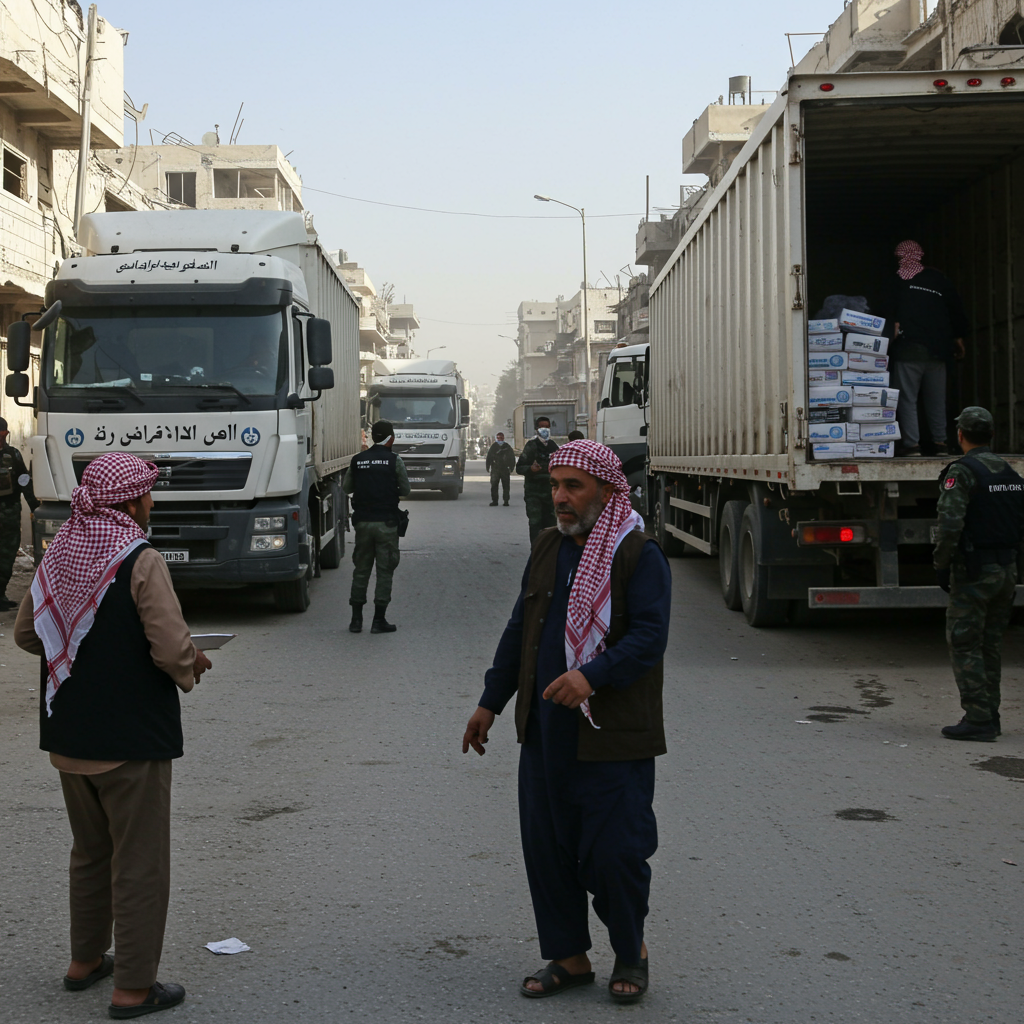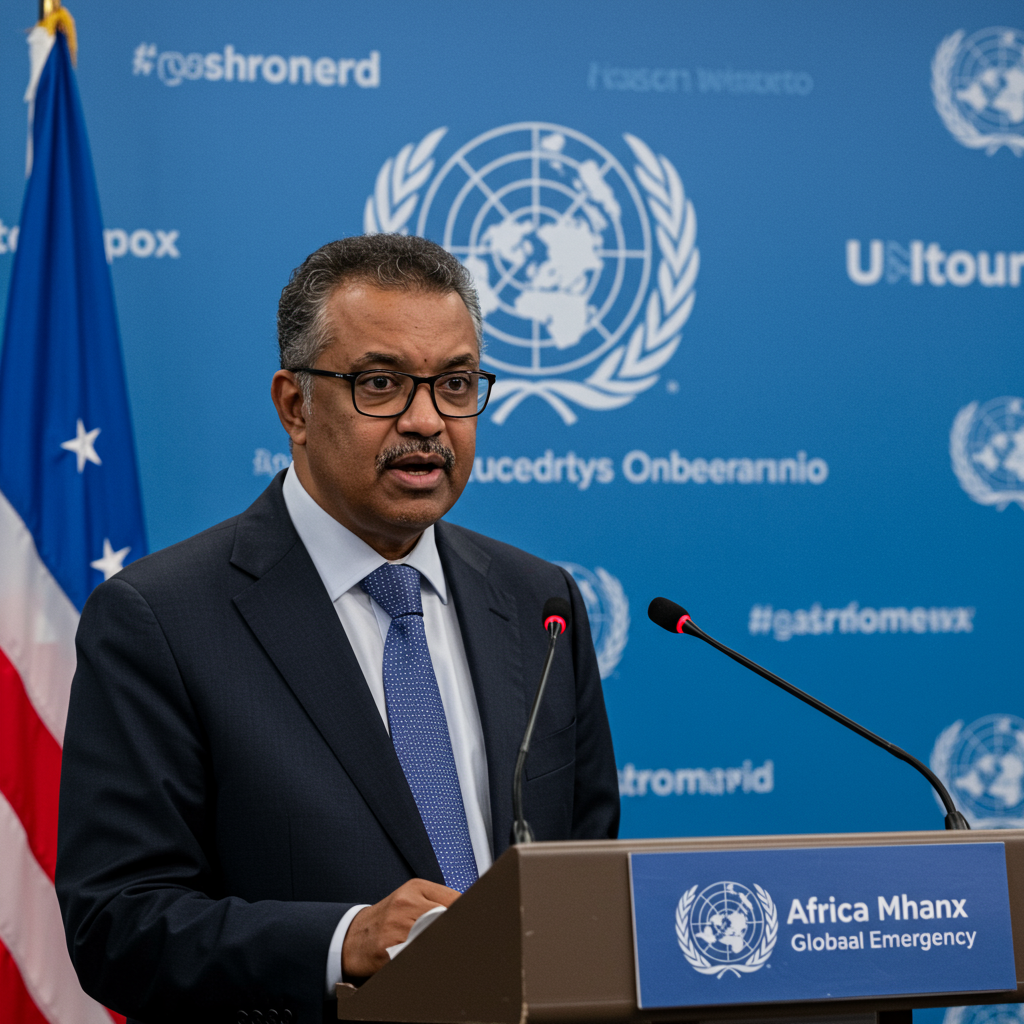Humanitarian aid deliveries into Gaza have been temporarily halted by Israel, citing concerns that the assistance is being diverted by Hamas. The decision follows the circulation of videos reportedly showing masked men riding atop aid trucks. However, influential Gazan clans have stepped forward, denying Hamas involvement and asserting their own role in providing security for the vital supplies amidst a severe humanitarian crisis.
Why Aid Deliveries Were Paused
The two-day suspension of aid shipments, confirmed by an Israeli official speaking anonymously, was reportedly ordered by Prime Minister Benjamin Netanyahu and Defense Minister Israel Katz. A joint statement from the leaders indicated new intelligence suggesting Hamas was seizing aid intended for civilians, particularly in northern Gaza. While the specific intelligence wasn’t disclosed, a video widely shared showed dozens of masked individuals, some armed, accompanying aid trucks, fueling the Israeli accusation. The pause is intended to allow the Israeli military time to develop a new plan to prevent the alleged diversion.
Conflicting Accounts: Clans Assert Security Role, Hamas Denies Theft
In direct contrast to the Israeli claims, the Higher Commission for Tribal Affairs, representing powerful clans within Gaza, stated that the individuals seen in the video were providing security for the aid trucks. They clarified that this security process was managed “solely through tribal efforts” and explicitly denied any involvement from Palestinian factions, including Hamas.
Hamas, which has governed Gaza for two decades but now holds limited control, also denied accusations of stealing aid. Throughout the protracted conflict with Israel, various local groups, including clans, civil society organizations, and even political rivals like Fatah, have often played roles in attempting to secure aid convoys. Clans, deeply embedded in Gazan society through extended family ties, have historically provided a degree of order and security.
Abu Salman Al Moghani, a representative of Gazan clans, emphasized their intent: “The clans came… to form a stance to prevent the aggressors and the thieves from stealing the food that belongs to our people.”
Beyond Factional Claims: The Challenge of Pervasive Criminality
Adding another layer of complexity to the aid distribution challenges is the significant breakdown in law and order across Gaza. Aid workers and residents report that violent thefts and banditry carried out by criminal gangs have become a primary obstacle, especially in the southern areas. These armed groups reportedly operate openly, sometimes near Israeli military positions, exploiting a power vacuum that emerged after Israeli operations targeted police officers linked to Hamas governance.
This collapse in security has led to severe incidents, including the violent looting of numerous UN aid lorries and the blocking of key aid routes by criminal families. While Hamas has reportedly reactivated a special security force to counter this banditry, some view this as an attempt to regain control over lucrative black markets rather than purely combating crime.
The chaos occurs at a time when aid entering Gaza remains desperately low. The acute shortage of food and other basic supplies has led to soaring prices on the black market, making essential items unattainable for many. Reports indicate that some stolen aid goods are being sold instead of freely distributed, exacerbating the humanitarian crisis.
Navigating New Aid Pathways Amidst Controversy
The difficulties in ensuring aid reaches those in need have also spurred alternative distribution efforts, some highly controversial. A new group, the Gaza Humanitarian Foundation (GHF), backed by the U.S. and Israel, has reportedly begun distributing aid using armed American security contractors. The GHF’s stated aim is to bypass traditional channels like the United Nations.
This initiative has faced widespread criticism from the UN and many aid organizations, who argue it contradicts humanitarian principles, risks weaponizing aid, excludes vulnerable populations, and sets a dangerous precedent by involving private military personnel closely aligned with a party to the conflict. Hamas has warned Palestinians against cooperating with the GHF system, while the GHF alleges Hamas has issued threats against groups supporting its operations. Palestinian reactions to the GHF have been mixed, with some collecting aid while others remain hesitant due to fears of crossing military lines or seeing the effort as part of a displacement strategy.
Humanitarian Catastrophe Deepens
The ongoing challenges to aid delivery occur within the grim context of nearly two years of conflict. Israel’s military campaign, launched in response to Hamas’s deadly October 7, 2023, attack, has caused widespread devastation and displaced most of Gaza’s two million inhabitants. Experts warn of looming famine, with current aid flows considered insufficient. The situation is compounded by factors such as Israel’s ban on commercial imports, which aid workers argue further reduces supply and incentivizes looting. Aid agencies also point to the need for Israel, as the occupying power, to provide security and facilitate access, criticizing instances where thefts allegedly occur in sight of military forces without intervention.
As Israel works to develop a new plan for aid security and Gaza grapples with internal disorder and conflicting claims over aid control, the desperate need for humanitarian assistance remains the most urgent challenge.



